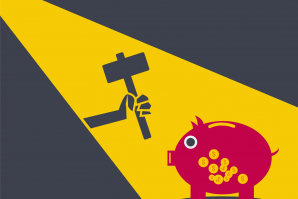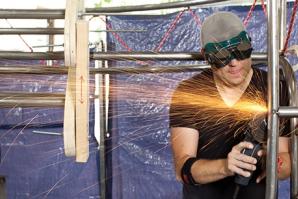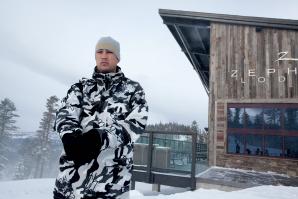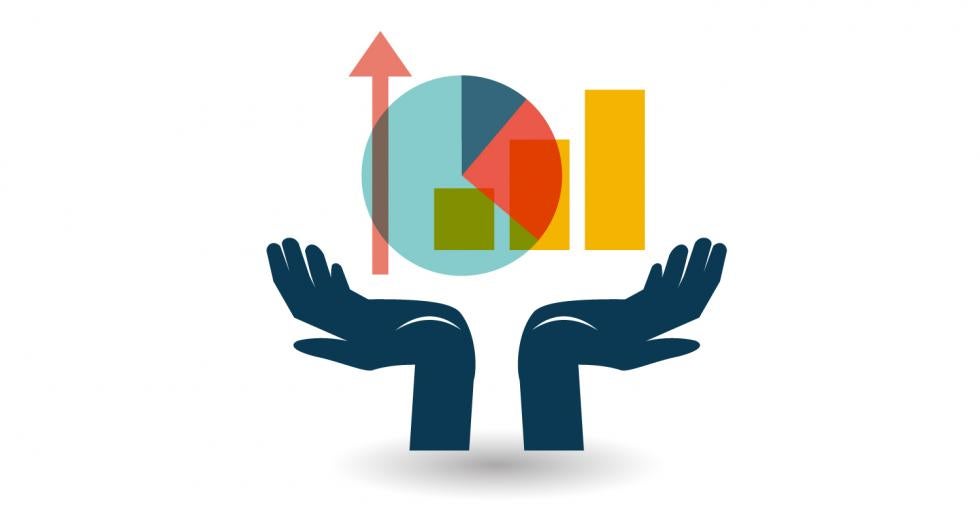Before Airbnb became a go-to source for local lodgings, founder and CEO Brian Chesky was just an aspiring entrepreneur struggling to make ends meet in a really tough market. An unexpected hike in his rent gave Chesky the idea to set up an air mattress in the living room of his San Francisco apartment and rent the space out as a popup bed and breakfast. The success of that air mattress was the start of Airbnb.
AirBnB is just one of the startups driving the sharing economy, a collaborative economic movement inspired by the efficiency of loaning and sharing existing resources on a fee-for-service model. It reduces environmental waste while supporting financial sustainability and building stronger communities.
Financial Fortitude
Airbnb has transformed from a single air mattress into a platform that has empowered tight-budgeted homeowners around the world to turn their spare bedrooms into a viable means of generating casual income. Chesky founded Airbnb in 2008, a year that saw an 81-percent spike in foreclosures. Six years later, Airbnb is now active in more than 34,000 cities across 190 different countries, and 47 percent of Airbnb hosts report that renting out their spare rooms and spaces has helped them keep their homes. While Airbnb might well have caught on during a more stable economy, the recession proved to be a catalyst for rapid adoption, both for hosts and for guests.
As the economic downturn created financial instability and insecurity around the country, a burst of San Francisco-based startups (Airbnb, Lyft, Uber, Listia, Yerdle) began to shed new light on the unharnessed potential of the things, space and stuff we all own.
The average power drill, for example, is used 13 minutes over the course of its lifetime. “There’s just no reason,” explains Annie Leonard, author of The Story of Stuff, “why every home needs its own power drill… when we can just share.”
“I think peer-to-peer services like Airbnb are a response to a market need, a market need driven by the economy,” says Robert Gonzalez, a former Airbnb host on the grid in Sacramento, “and meeting the need has created a shift.”
That shift towards sharing means the brands behind the sharing economy are thriving despite a lackluster economic recovery. And those air mattresses and power tools have proven a reliable way for individuals to stabilize their income in the midst of economic uncertainty.
According to Molly Turner, head of civic partnerships at Airbnb, one in every five of this year’s World Cup attendees stayed in an Airbnb.
Building Community
But financial gain is only part of the sharing economy’s draw. Gonzales and his girlfriend didn’t become Airbnb hosts just for the income.
“We did it for the experience,” he says. “We wanted to be able to meet people, we liked being able to help provide people an adequate view of Sacramento instead of them just staying at a hotel and using a guide book. We got to showcase our city.”
Gonzales’ guests have been primarily business travelers who appreciate the more personal experience they get from Airbnb. “It isn’t just that they’re spending less money,” he says, “it’s that they’re getting more than they get from a hotel.”
Being able to meet new people and showcase your city is all part of the third prong of the sharing economy’s bottom line: building community. The brands behind the sharing economy have tapped into the very real human need for connection. Lyft isn’t a taxi, it’s your friend with a car. Airbnb isn’t a hotel, it’s space in someone’s own private home.
Jan Krueger, also known as MomLyft, is a Sacramento Lyft driver who isn’t in it for the money. “I have passengers tell us we’ve fixed a lot of the issues that exist with the cab industry,” she says. “We’re friendly, we’re clean, and we want to get to know them. These are people with personality who want to be part of the community.” Jan brings the same approach to her Lyfts as she did when she was a soccer mom, including the handmade popcorn balls she gives to each of her passengers.
Whittling Down Waste
Rather than building new hotels throughout Brazil to accommodate the influx of World Cup visitors this year, a number of Brazilian cities partnered with Airbnb to pair tourists with local hosts, generating local revenue without investing heavily in infrastructure that wouldn’t be needed or easily sustained after the Cup finals. According to Molly Turner, head of civic partnerships at Airbnb, one in every five of this year’s World Cup attendees stayed in an Airbnb.
By leveraging existing resources, the startups behind the sharing economy are able to reduce waste and the need for new top-down investments while enabling more local residents to benefit from major events.
Leveraging Airbnb’s technology and reach to pair homeowners with tourists during the World Cup was a very tangible way to return World Cup profits to the people of Brazil while reducing environmental impact and creating a more authentic local experience. Hotel chains look much the same around the world, but an Airbnb experience offers an authentic taste of local culture.
As the sharing economy’s reach has broadened from the fringe to the mainstream, it’s begun to radically disrupt the way we shop, the way we commute, and the way we think as a culture. While the extent this new economic movement’s disruption hasn’t yet been fully realized, it’s quite possible, too, that its full potential hasn’t yet been realized.
In any case, should you want to rent out your power drill or trade for a used one nearby, you might want to checkout Listia, Yerdle, or NeighborhoodGoods.
Do you prefer rideshare services or taxicabs? Let us know in the comments!
Recommended For You

Underhanded Dealings
The dark side of the “shadow economy”
Unscrupulous vendors are a small part of the so-called shadow economy – the unlicensed contractor for sure, but also a vast black market of businesses, often cash-only, working out of homes or garages, that don’t pay the taxes or licensing fees their competitors do. While profitable for the person getting away with it, this underground economy hits all of us right where it hurts – in the pocketbook.

3 Ways Coffee Shops Boost Your City
The economic and urban impact of your morning latte may surprise you
Our local coffee roasters have been putting Sacramento’s coffee scene on the map. While roastery fame is an exciting addition to our Farm-to-Fork movement, it’s not the only way our local cafes are having a positive impact on our city. They also help…

Independents’ Day
Look out 9-to-5, the freelancers are coming
Casey Marshall is hunched over his phone, furiously scrolling through his Twitter feed in search of a photo of Waste Management’s promotional robot, whose broken axle he fixed back in March. “Someone came into the Hacker Lab and needed his robot repaired,” he says, grinning, “and I was like, ‘I gotta do that.’”

The Millennial 1%
Affluent YPs are a new breed of consumer
When he’s not jet-setting to Tahiti or hobnobbing with his best friend Tom Cruise*, Sean O’Brien is just a regular guy. He’s 29, single, never pays full price when shopping online and likes to snowboard with friends in Tahoe.



